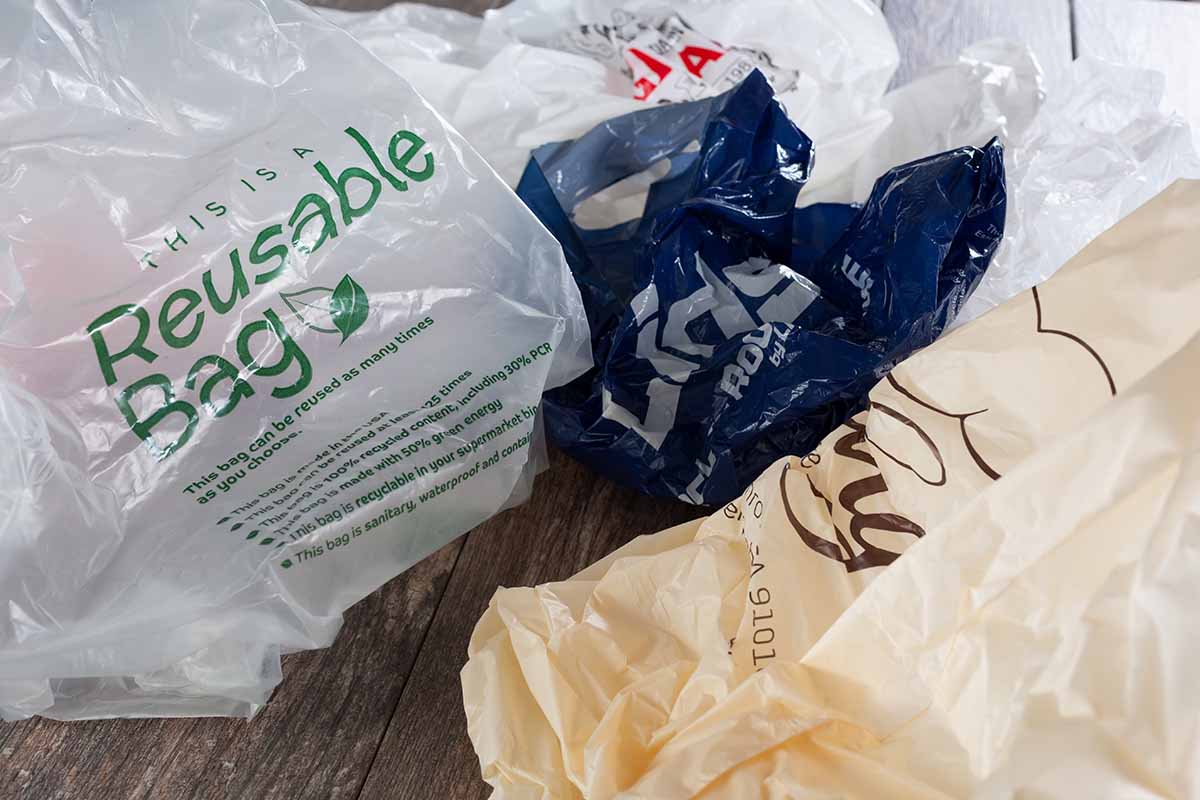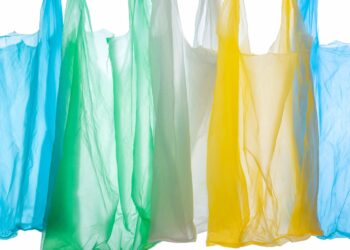A new report on state-level single-use bag laws indicates that New Jersey’s ban has had numerous effects, both positive and negative.
The Consortium to Reinvent the Retail Bag studied various legislative means of reducing bag waste and how bag fees and bans affected waste and consumer behavior. The group is managed by Closed Loop Partners’ Center for the Circular Economy.
So far, 12 states have implemented bans on single-use plastic bags: California, Colorado, Connecticut, Delaware, Hawai’i, Maine, New Jersey, New York, Oregon, Rhode Island, Vermont and Washington. In addition, numerous municipalities have banned and/or imposed fees for bag use, including Chicago, New York City and Los Angeles.
The New Jersey law took effect in May 2022. As the most restrictive U.S. legislation, it prohibits distribution of single-use bags, regardless of material, though it does allow smaller grocers to offer paper bags. While the new analysis shows a significant reduction in consumption of single-use bags, regardless of material, it also indicates that more customers are accumulating too many reusable bags.
Using the study results, the Consortium also provides a list of policy considerations for reducing waste, environmental impact and costs associated with bags. Among these considerations is enabling customers to bring their own bags or do without. In addition, the group asserts that bag bans alone do not ensure behavior change or reduced environmental impact, and that bag fees are the only legislative tool guaranteed to decrease single-use bag consumption.
Customers amass reusable bags in first year of ban
Over the first year of the ban, the Consortium sent four surveys to state residents to gauge awareness, understanding and other measures surrounding single-use bags, and received a total of 2,600 responses. The group also analyzed two years of store data — one year before and one year after the ban was implemented — on procurement and sales of single-use bags, as well as for reusable bags of various materials.
The primary findings were that:
- Stores gave out 96% fewer bags per week, or about 90 million fewer across 33 stores.
- During the first four months of the ban, customers were adapting behavior to the new law and sales of reusable bags rose.
- A year after the ban, nearly all respondents said they owned enough or too many reusable bags; those with too many who wished to dispose of them rose significantly too.
A year after the ban took effect, 91% of those surveyed reported owning enough or too many reusable bags — an increase from 75% at implementation. Further, 16% indicated they had too many reusable bags and wanted to dispose of them, a rise of 11 points from a year earlier.
The method of shopping also influenced bag use. Online item ordering used a disproportionate number of bags, with curbside pickup and similar methods representing only 6% of average grocery store sales but 32% of reusable bag use.
Throughout the course of the survey, customer sentiment remained mostly unchanged, with 41% of respondents happy with the legislation a year after implementation, compared to 43% in May 2022. Those expressing confusion about the law dropped by 4 points to 10% over the year. Other emotions expressed were:
- Frustration: 35%, up 3 points.
- Anger: 23%, up 1 point.
- Indifference: 22%, unchanged.
Policy considerations
The survey reinforced the notion that helping customers bring their own bags or go without is the best approach, a key consideration for regulators and policymakers charged with addressing bag waste. Other considerations the Consortium provided include:
- Create uniform state- or regional-level legislation for a consistent customer experience, to reinforce behavior and ease the burden of retailer compliance.
- Develop zero- or lower-waste alternatives for pickup and delivery channels.
- Implement recovery and recycling systems for any bags used, including reusable options.
- Consider socioeconomic impacts of proposed legislation, including that bag fees disproportionately affect lower income individuals.
Coming soon: New consumer campaign
To accompany the study, the Consortium plans to launch a new consumer-facing campaign this summer, with details expected within the next month, according to a press release.
In 2023, the Consortium conducted a three-month pilot project tracking the effects of store signage and employee training on consumer behavior. The project showed a nearly 4.8% decrease in single-use bags across the two studied markets — Denver and Tucson — and a 11.7% reduction in Denver, which has a 10-cent fee on single-use bags.































